Are the roles of B2B vs. B2C different in Social Media?
Do certain platforms work better for B2B? What about B2C?
Does experience play a role? How about time spent?
Recently two studies were conducted about the role of social media in B2B and B2C. One thing is clear whether you are a B2B company (Business to Business) or B2C company (Business to Consumer). Lack of a written strategy along with tactics is costing you and your business. Success or Failure is rarely a wide gap between daily activities. It’s paying attention to:
- Detail
- Being Flexible
- Having clear goals
- Having a clear strategy
- Knowing what tactics to use
- Being willing to TEST, and then TEST some more
So what’s your strategy?
KNOW YOUR PLATFORMS
Each social media platform has it’s benefits and learning curve. Who gets the memo when they change constantly? We have to learn to adapt to these changes in light of the impact they will have on our strategy.
Social Media Platforms take a time commitment from you or an employee each day. Understand, once you make the commitment, it’s all in and being consistent each day.
Recognize that these platforms are constantly making changes that could affect the way you are marketing. What many businesses are doing to combat the loss of control is to have a dynamic website where the majority of traffic will flow.
The website is your hub, and the spokes are the social media platforms that will feed into your website where you have control.
Here are the major social media platforms: No new major ones have come onto the scene to supplant these that have a foothold in the market. However, expect leaders to emerge and others to wane over time. Clearly most businesses today are utilizing several of these social networks, if not all of them.
- Google+
- YouTube
- Blogging
- Slideshare
As you can see, there are many, and there will be more in the future. Remember these are just tools. So which ones are better for B2B or B2C?
THE ROLE OF SOCIAL MEDIA PLATFORMS
Content
Content is the fuel that powers the Social Media engine. You are your own media company, good or bad. Time or no time. You control the brand message.
Content is no longer just written words such as white papers, blog posts etc. It is also…
- Visual
- Audio
- And interactive content
Furthermore, the messaging within a social post itself can now be considered content. The rules of content marketing, are not being overtly promotional.
Rather, content is supposed to provide value to the reader – no one cares about you or your company, they want to know what is in it for them. After providing value with your content, you will then be seen as a thought-leader. Your company will then be at the top of their mind when it comes time to make a purchasing decision.
B2C
In terms of the “classic” types of content, B2C companies should focus heavily on blog content. It’s important to think about how shareable a post will be when writing blog content. Make sure there are share buttons on your blog, so that readers can easily share your content across social channels with a single click.
B2C marketers can leverage the amazing viral effect of visual content as well. Creating entertaining and educating videos, distributed through YouTube or other channels, is an excellent way to do this.
Content continues to evolve. Messaging within a social post itself is a type of content marketing. It’s important that this type of content is well thought out, specifically in terms of who the target audience is.
As such, social content for B2C marketers should be more casual – including humor works as well.
B2B
B2B marketers have a vast arsenal to choose from when it comes to content marketing.
B2C marketers have the benefit of being more casual in the type of content they create, B2B marketers generally focus on more “professional” types of content.
White papers, while extremely labor intensive, serve a plethora of beneficial purposes for a B2B marketer. First and foremost, white papers are a tool for lead generation. Given how in-depth a white paper can be, and how much information it provides to the reader, people are more willing to give their personal details to access it.
Lead generation is the most important goal for B2B marketers, so the man hours required to write them are more than worth it.
B2B vs. B2C
This chart shows how B2B social media use differs from B2C-focused marketers.
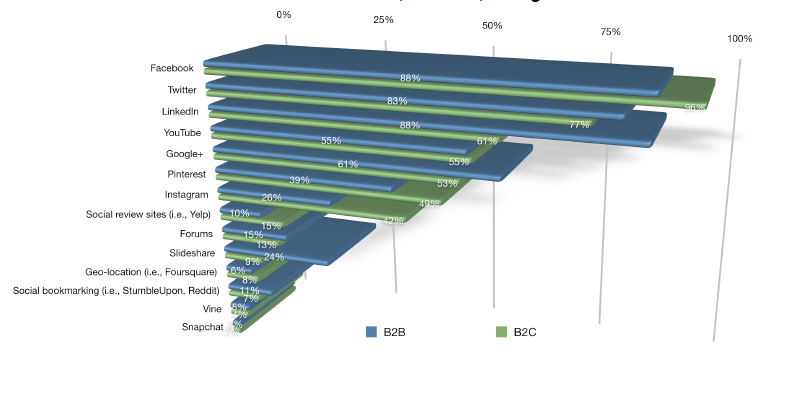
B2C marketers are more focused on:
- YouTube
- and Instagram
B2B marketers are more focused on:
- Google+
- and SlideShare
Notice the differences between B2B- and B2C- what stands out to you?
Facebook dominates in the B2C space (65% of marketers select it as their number-one choice).
However, for B2B marketers, LinkedIn passes Facebook and Twitter plays a much more important role.
CHALLENGES B2B & B2C FACE
Interesting is the fact the top two in each has to do with Content! This mirrors with my coaching of clients as well.
COMMONLY USED TYPES OF CONTENT
FUTURE SOCIAL MEDIA ACTIVITIES
How will marketers change their future social media activities? What roles will the social media platforms play? Here are the results of the survey.
Will they increase, decrease, remain the same or not utilize various social media channels.
INCREASE
Marketers plan on increasing their use of:
- Twitter (66%)
- YouTube (66%)
- LinkedIn (66%)
- and Facebook (62%), in that order.
A significant 82% said they have no plans to utilize Snapchat. Sixty-one percent have no plans to use Vine.
Here is a breakdown by social media channel:
#1: Twitter
A majority of marketers (66%) will increase their activities on Twitter. Twitter barely edged out YouTube (by .01%) and moved from its number-three slot in 2014.
#2: YouTube
A significant 66% of marketers plan on increasing their YouTube marketing. However, 15% have no
plans for using YouTube.
#3: LinkedIn
A significant 66% of marketers plan on increasing their use of LinkedIn, an increase from 64% in 2014.
As expected, B2B marketers are significantly more likely to plan on increasing their use of LinkedIn
(80% of B2B vs. 56% of B2C).
#4: Facebook
Our research shows a decline in the use of Facebook among marketers. It moved from the number-two slot in 2013 with 70% of marketers increasing activities to 64% in 2014 and 62% in 2015.
Also, 8% of marketers plan on decreasing their use of Facebook.
However, as shown earlier, Facebook is still the most important social network to most marketers.
Only 3% of marketers surveyed do not plan to utilize Facebook.
Sixty-eight percent of B2C plan on increasing Facebook efforts, compared to only 53% of B2B.
#5: Instagram
Fifty-two percent of marketers plan to increase their use Instagram (up from 42% in 2014). It is possible that marketers who are decreasing their Facebook activities are increasing their Instagram
activities.
B2C marketers are significantly more likely (60%) to increase Instagram activities than B2B
marketers (40%).
#6: Google+
Google+ is on the radar for many marketers. Most businesses (52%) plan on increasing their Google+
activities (down from 61% in 2014), and 1 in 5 have no plans to use Google+.
Notably, 78% of marketers plan on keeping their Google+ activities the same or increasing them, a 1%
increase over 2014. These results counter critics’ claims that Google+ is on it’s way out.
#7: Pinterest
Slightly more than half of marketers plan to increase their use of Pinterest. This number increased slightly from 50% in 2014.
B2C marketers are significantly more likely to increase Pinterest activities (58%) versus 41% of B2B.
#8: SlideShare
Only 29% of marketers plan on increasing their SlideShare activities.
A significant 43% of B2B marketers will increase their SlideShare activities, compared to just 26% of
B2C.
#9: Forums
Forums, perhaps the oldest form of social media, saw a slight increase from 2014, where 26% planned on increasing activities and 52% had no plans to use forums.
- B2C marketers are more interested in learning about Facebook (74% B2C vs. 57% B2B)
- Pinterest (55% B2C vs. 38% B2B)
- and Instagram (56% B2C vs. 39% B2B) than their B2B counterparts.
- And B2B marketers are far more interested in learning about LinkedIn (71% B2B vs. 55% B2C).
- A significant 82% of marketers have no plans to use Snapchat
Blogging is more important for B2B marketers (57% say it is the most important) than B2C marketers (39% claim it is most important).
B2C marketers place more importance on visual content (40% say it is the most important) than B2B marketers (only 24% claim it is most important).
How will this impact the way you approach your market?
Sources: Social Media Examiner Marketing Report 2015 | Content Marketing Institute | Marketing Profs
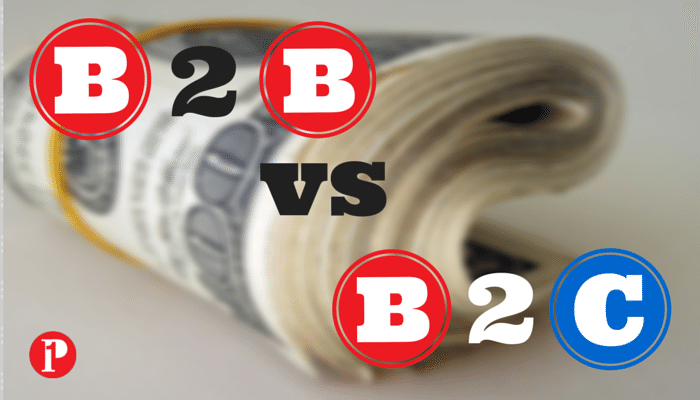
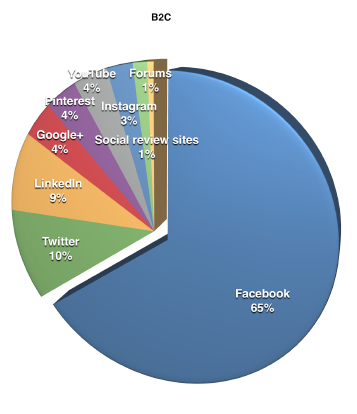
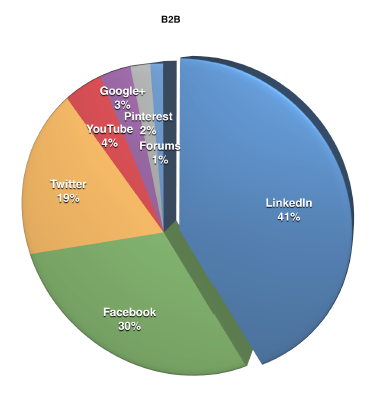
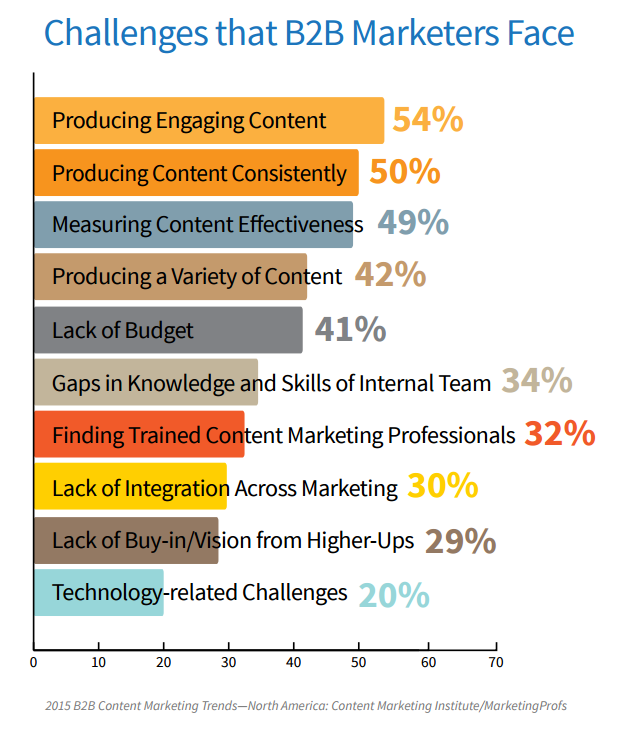
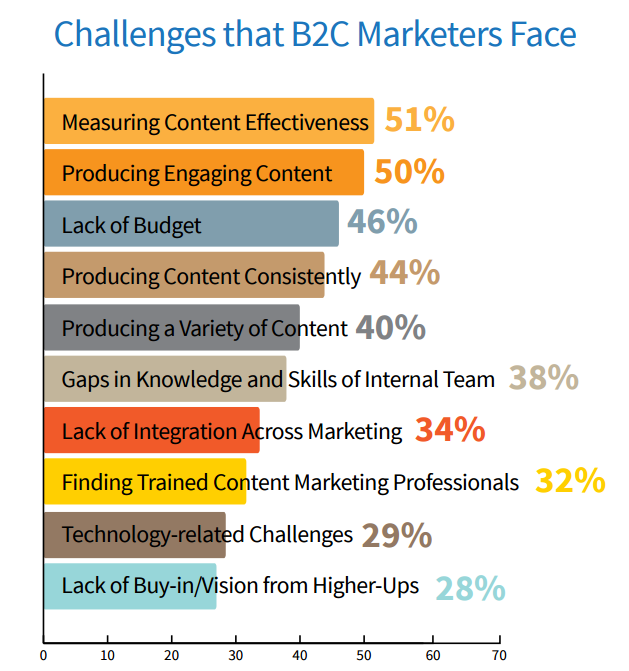
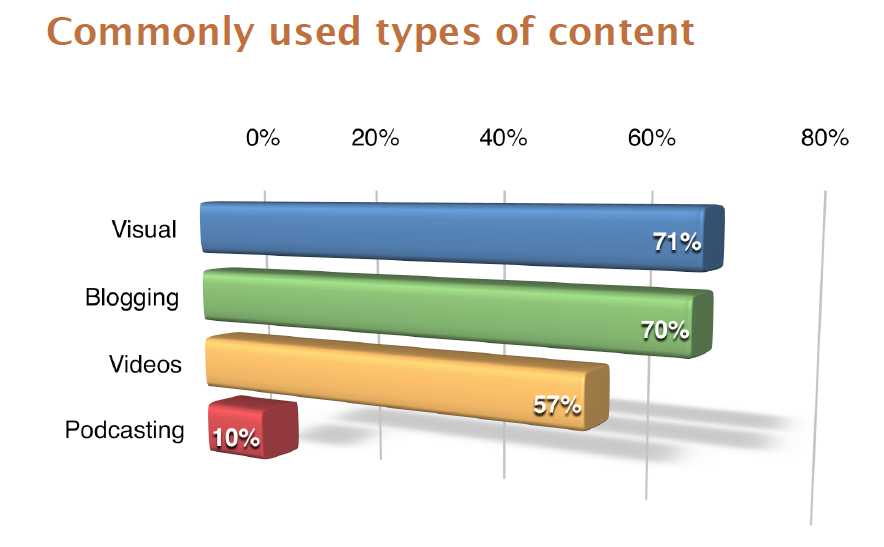
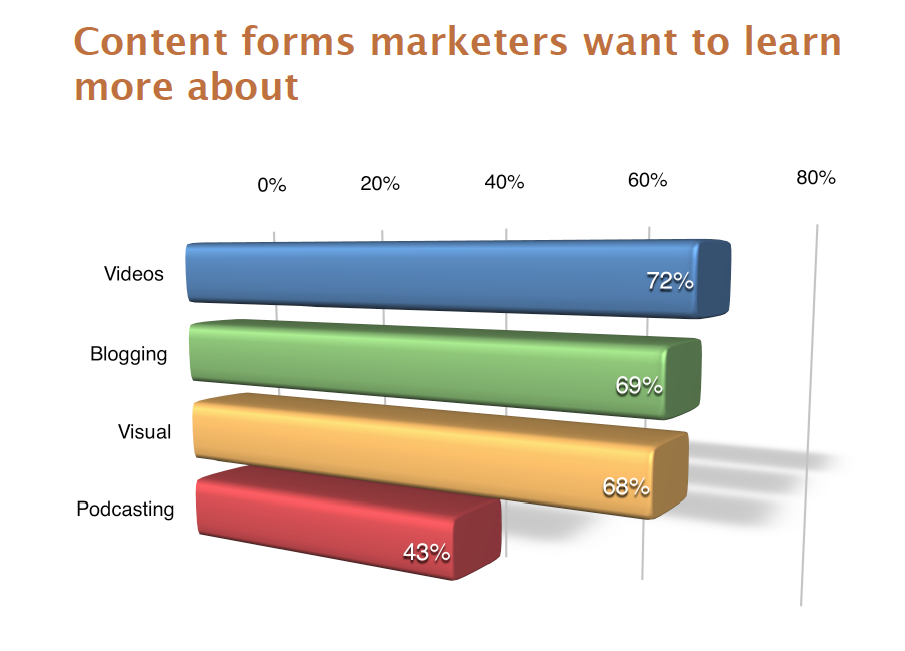


![[Study] How Will Businesses Change Their Social Media Activities 5 Golden Rules for Sharing on Social Media](https://www.prepare1.com/wp-content/uploads/2014/03/COACH-logohat-162x300.jpg)
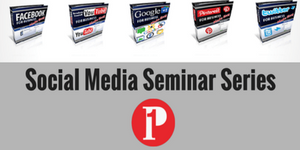



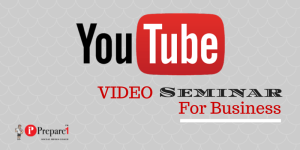
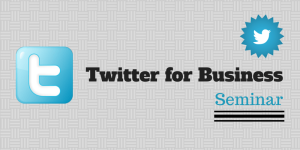
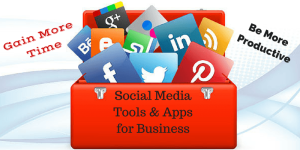

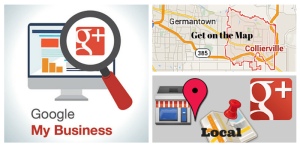

Comments on this entry are closed.
{ 3 trackbacks }